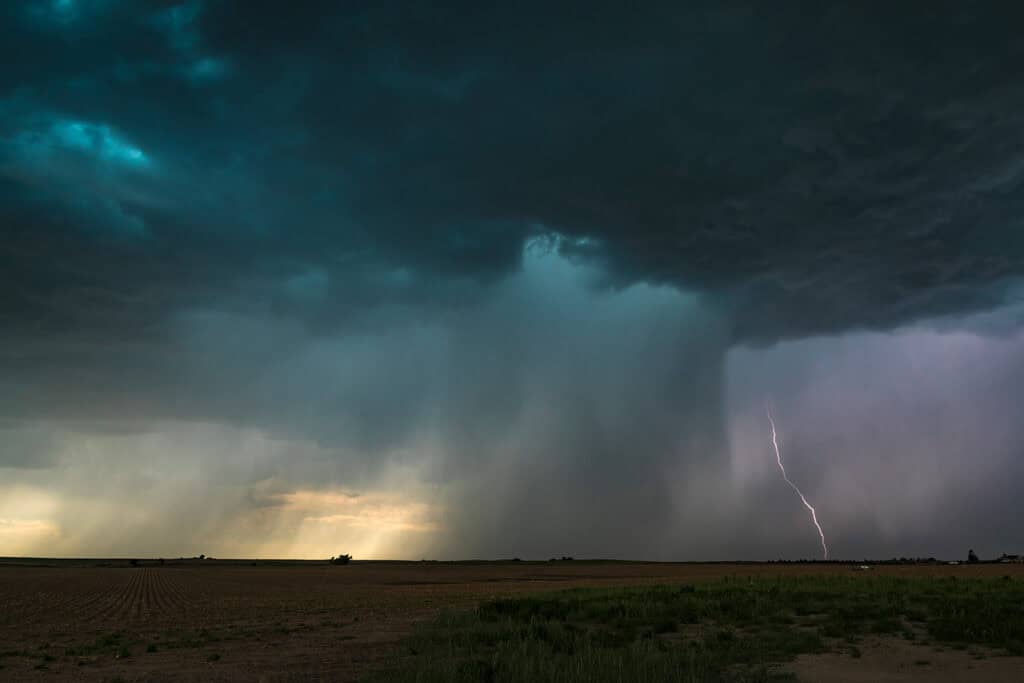
Hurricanes and the Supply Chain
The other day at the grocery store, my 10-year-old son asked me a simple question, “Dad, why are the shelves empty?” He’d noticed some of his favorite snacks missing, and it struck him as strange. Little did he know, the answer was anything but simple. I explained that hurricanes were causing a lot more problems than just bad weather – they were affecting the supply chain, too.
Imagine that everything we buy, the food—the toys, even the clothes we wear—must travel a long way to get to the store, I told him. When a hurricane like Helene or Milton hits, it doesn’t just knock down trees and flood streets, it also prevents your snacks from getting to us.
This hurricane season has been nothing short of historic. After Helene made landfall, bringing catastrophic floods and wind damage, Milton followed close behind with equally devastating force. Communities have been left picking up the pieces, but the supply chain—the unseen backbone that keeps our stores stocked—has felt the shock just as powerfully far beyond the path of destruction.
The Ripple Effect on the Supply Chain
Beyond the immediate devastation, the ripple effect across the supply chain is enormous. Ports that are critical hubs for global trade have been forced to close as hurricanes batter coastal regions. Cargo ships, often carrying essential goods like food, medical supplies, and consumer products, are left with no choice but to reroute or anchor offshore, waiting for the storm to pass.
This leads to significant supply chain delays. Ports that manage roughly 56% of containerized imports to the US were already struggling with congestion from the recent port strike and now face a compounded problem—a massive backlog of ships trying to dock and unload. As these bottlenecks intensify, it’s not just the local area that’s affected. The delayed unloading of goods has a far-reaching impact, slowing down the entire supply chain.
And it doesn’t stop there. Roads and railways connecting ports to distribution centers and warehouses are also disrupted. Fallen trees, flooded roads, and damaged infrastructure make transportation difficult. Trucks and railcars carrying goods encounter delays, further exacerbating the situation.
The Inland Challenge
Another layer of complexity is in play. Inland distribution centers – those strategically located hubs where goods are sorted, stored, and dispatched – often become impassable after major storms. These centers serve as crucial nodes in the supply chain, ensuring that products flow smoothly from manufacturers to retailers.
When a hurricane strikes, these distribution centers face challenges of their own. Warehouses not directly affected by the weather fill up with inventory that can’t be moved due to damaged roads or flooded areas. Imagine stacks of goods waiting patiently, unable to reach their final destinations. Retailers across the country start to feel the pinch as their shelves remain empty, even if the hurricane struck thousands of miles away.
Can They Weather the Storm?
This situation puts brand owners and retailers in a tough spot. The core question is whether they have enough inventory on hand to weather the storm—literally and figuratively—until the supply chain starts moving again. The unpredictability of hurricanes, coupled with existing challenges in the logistics industry, makes this incredibly difficult to manage.
For businesses to survive these disruptions, having real-time visibility into their supply chains is critical. This is where a competitive advantage like e2open comes into play. With the ability to track shipments, predict bottlenecks, and coordinate with suppliers, companies can make informed decisions to minimize the impact of these disruptions.
For example, Covetrus, a pet health products company, is using e2open to identify in-flight packages headed to areas affected by Hurricane Milton, so they could communicate updated delivery information to pet owners awaiting prescriptions for their furry family members.
Ultimately, supply chain visibility isn’t a nice to have–it’s a necessity in the face of natural disasters like hurricanes. Without it, the chain breaks, and the empty shelves my son sees become a reality for many.
E2open Stands Ready to Help
Supply chain professionals know that the only time the public is aware of the important work they do is when something breaks and their favorite products aren’t available anymore. But with the right solutions, better visibility, and a sound response strategy, our supply chains can be more resilient to major disruptions like hurricanes – and our snacks are right where they should be.
Are you interested in learning more about how e2open can help your business improve supply chain visibility and agility to mitigate a hurricane’s impact on supply chains? Please, contact us!

Author
Jeff Eckel
As Director of Product Marketing for e2open, Jeff Eckel is focused on solutions that help clients collaborate across all tiers of supply and manufacturing. With over 20 years of experience in supply chain business intelligence, Jeff has a deep understanding of supply chain management business processes. He specializes in translating complex business challenges into an end-to-end understanding of tangible business value. In his career, Jeff has held a variety of roles including product marketing, product management, solution consulting, and professional services. He is located in Austin, TX, and enjoys spending time with his kids outside of work.





